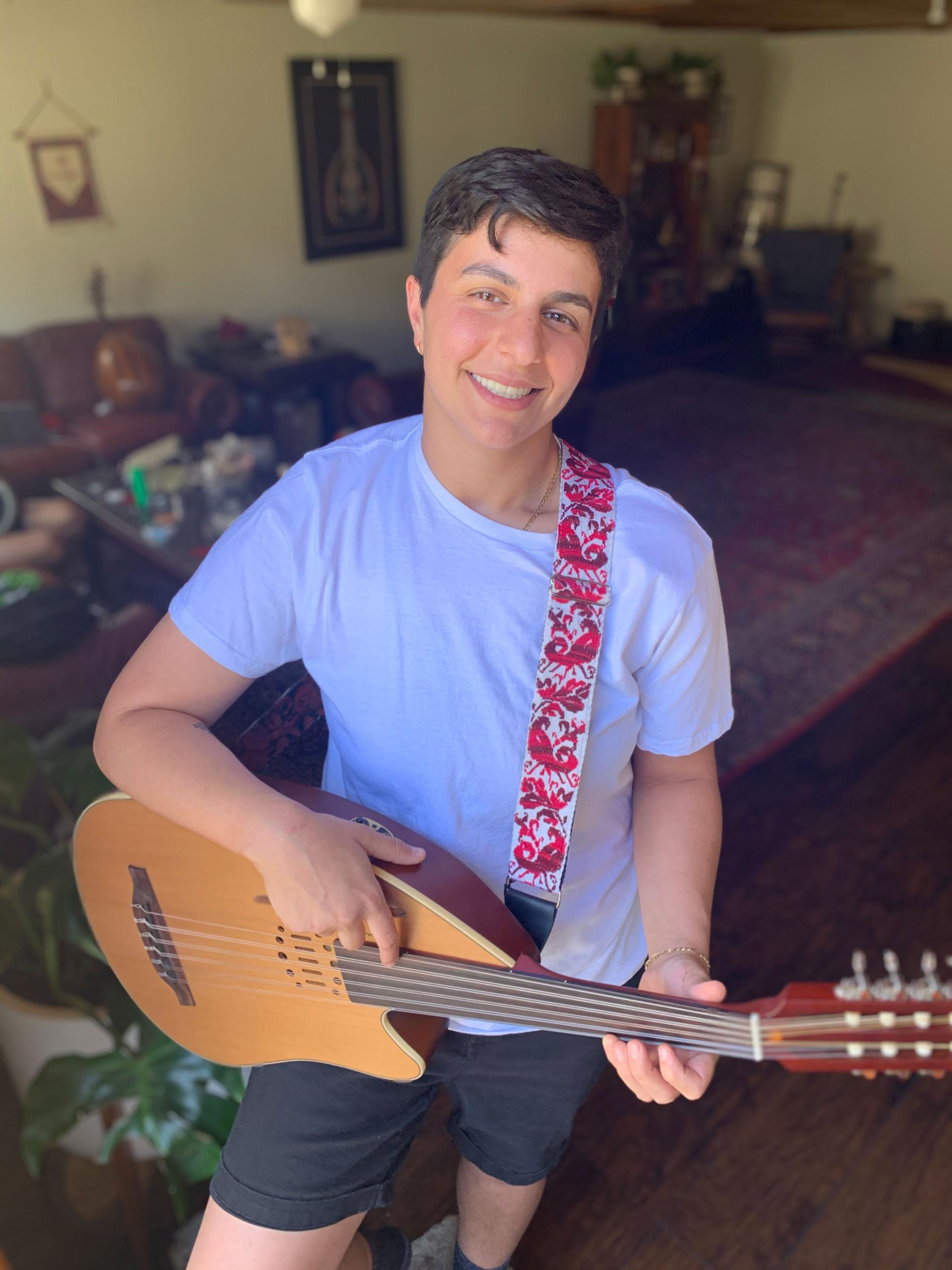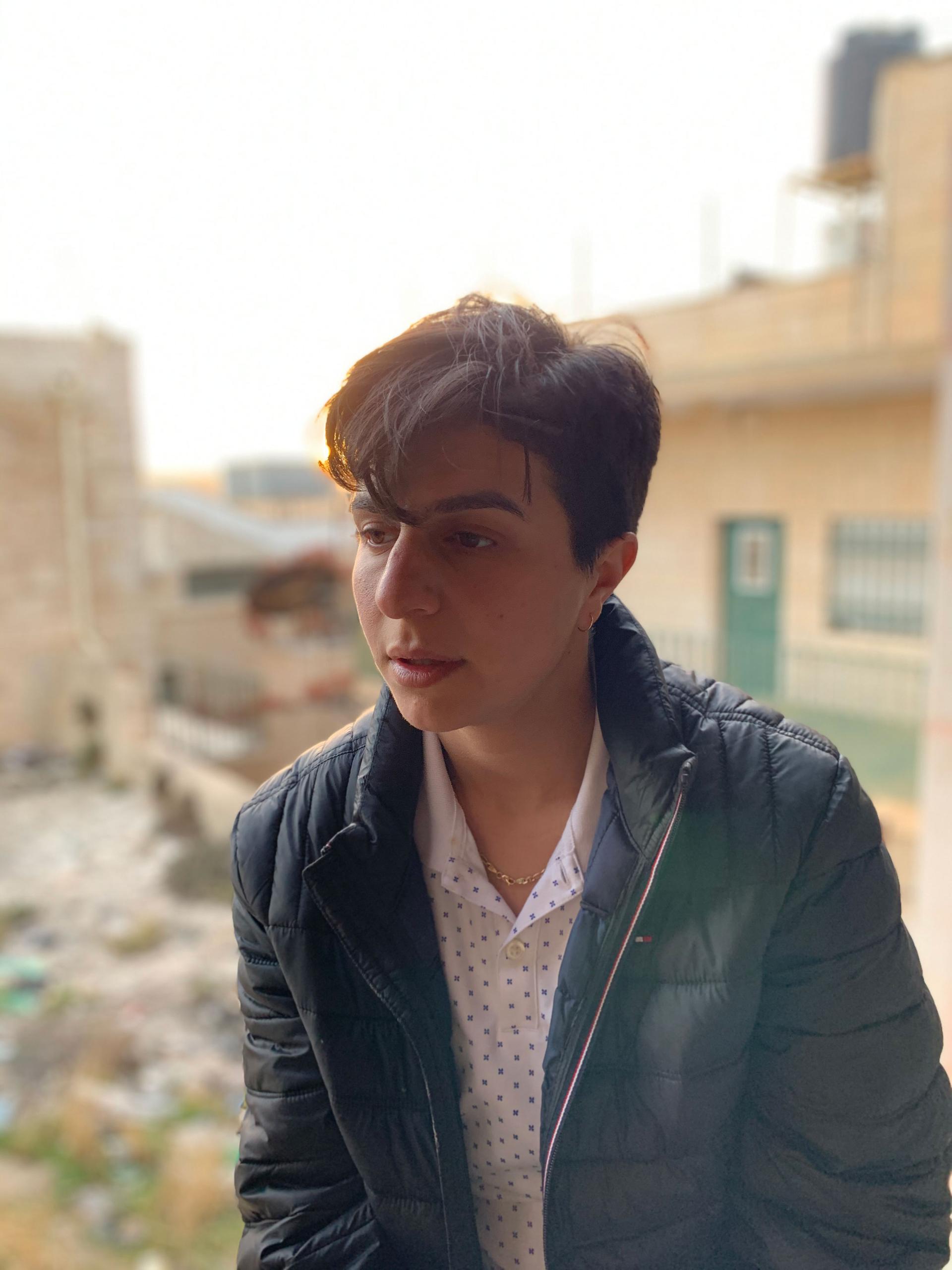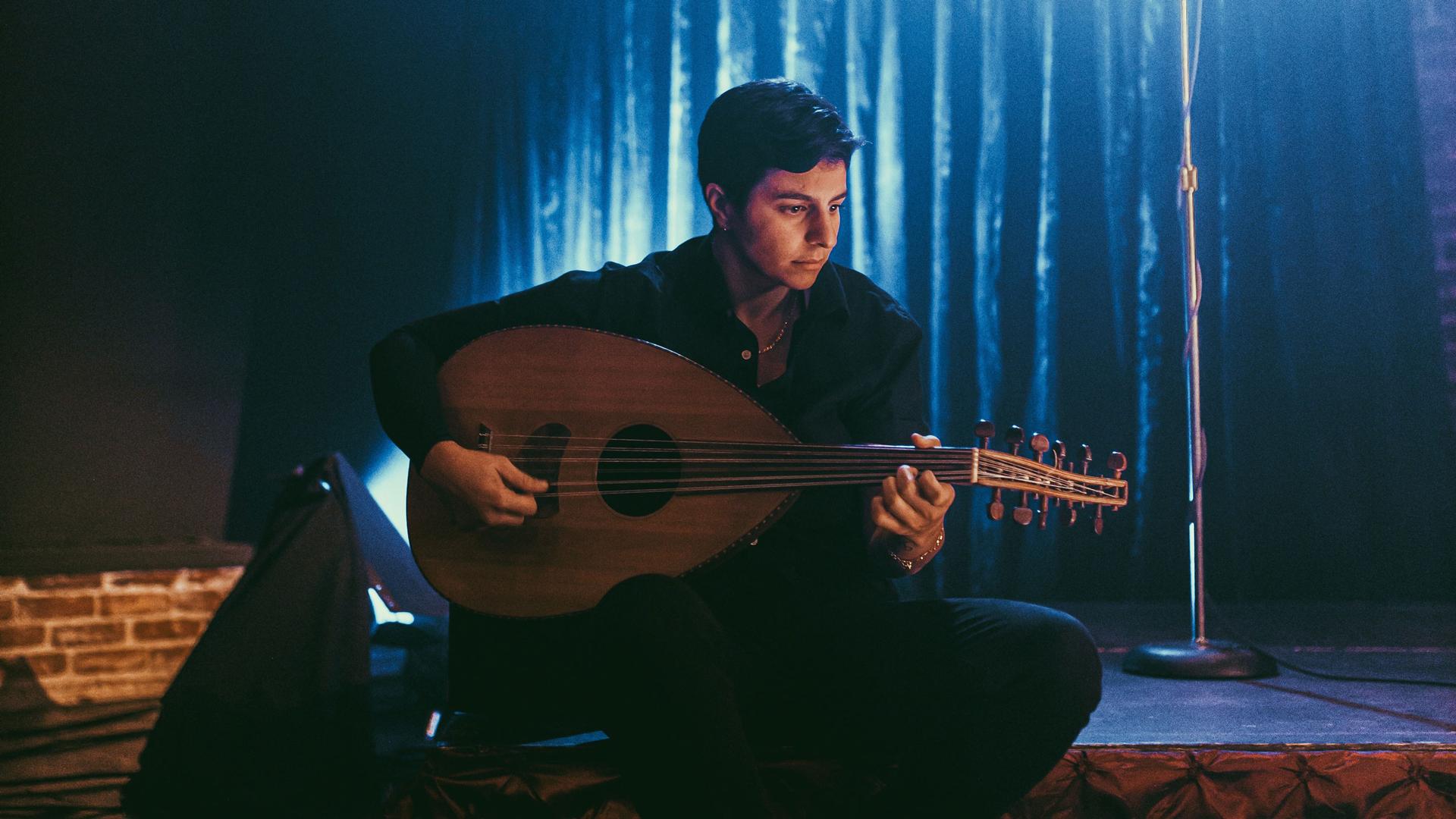When Palestinian American musician Clarissa Bitar first told their father that they wanted to learn how to play the oud, his first reaction was skepticism.
He told Bitar that learning how to play the classical string instrument would be difficult.
“He kinda put me down a little bit in a way that was a challenge to me. Because I was like, ‘OK, dad, I’m gonna show you. I’m gonna show you that I can do this,’” Bitar said.

When Bitar was in college, they said that one hour of practice turned into two or three hours at a time. Eventually, they were practicing up to five hours a day and didn’t even realize it.
Bitar found that learning to play the oud, an instrument unique to the Middle East, could bridge history and great distance.
Bitar grew up in Los Angeles, as part of a well-established Palestinian community. One side of the family was expelled from their home in 1948; the other side in 1967. They grew up with stories of home — and songs of home — but the oud helped them connect with their past in a whole new way.
One weekend, Bitar came home from college at UC Santa Barbara and brought the oud with them.
“I remember playing for my grandparents and they were so shocked and they were like, ‘How did you know this song and how are you playing so well?’ And it kind of brought the family together in a different way. We always had this love for music, but [the oud] almost, like, resurfaced it,” Bitar said.
Growing up, Bitar lived next door to their grandparents.
“My grandfather, he loved to sing a lot, so he exposed me to a lot of music. I would sit in his car and we would go for drives or go to the grocery store and he would just have all the classic stuff,” Bitar said.
These sounds were always a part of Bitar’s soundscape.
“But after I started learning oud and putting that to practice, I realized like, ‘wow, even though I grew up in [the] diaspora, I was still so surrounded by all of that music that it really helped me bridge that gap … to learn and to have this repertoire in my head…’” Bitar said.
This type of music was especially popular during Bitar’s grandfather’s youth and Bitar said it was part of the culture to actively listen and engage with the sounds. Fans would stand up and yell and scream at the artists, telling them in Arabic, “My God! This is so beautiful!”

This link between culture and music can be very meaningful to Palestinians in the diaspora.
“There’s just this constant grieving that happens as Palestinians where you are just, you wake up to depressing news all the time. And it can be emotionally really tough. And I think that music and art provide, not only a way to communicate your pain, but also to have spaces to heal,” Bitar said.
“I don’t live under occupation on a regular basis, and it’s taxing to have to see what your people go through. So, you can understand how important art and culture can be in these movements to help heal people and to give people a way to cope with their reality,” Bitar added.
And there are layers of complexity when it comes to culture and identity, Bitar said.
“It’s been layered too, as a queer person, because I can even be othered within my own community.”
Bitar said art has provided them the space “to help my queerness become more palatable to my community, in a way,” and to make their value more visible.
Bitar, who still lives next door to their grandmother, continues to share a love for the songs and scales that brought their family together.
“I think after my grandfather passed, it began to trigger a much more emotional response from [my grandmother.] But you can still see — between the tears — so much pride. Like, she’s so proud of me,” Bitar said.
